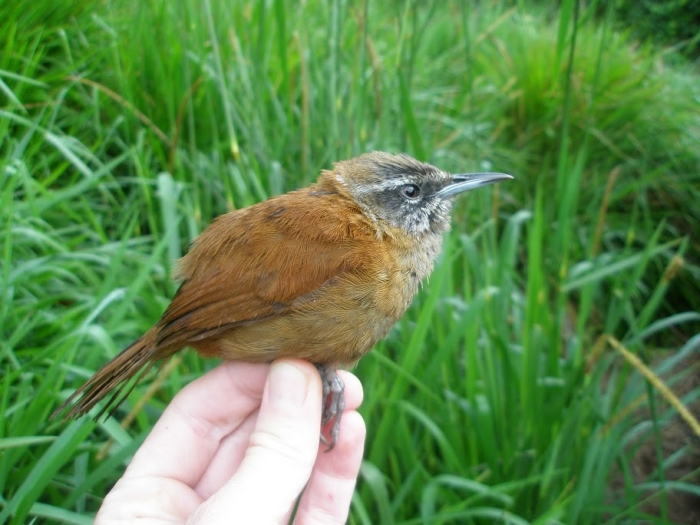
How can humans learn to get along? Maybe the answer comes from the simple wren.
Biology professor Melissa J. Coleman became fascinated with the plain-tailed wren, found in the bamboo thickets in the Andes. Especially when she found that the female of the species, known for singing duets, takes the lead when she warbles with a male.
Further study of the bird’s brain waves showed Coleman that the birds are wired to cooperate with one another when singing.
Coleman, who is in the W.M. Keck Science Department of Claremont McKenna, Pitzer, and Scripps Colleges in Claremont, Calif., has shared her research in “Neural mechanisms for the coordination of duet singing in wrens,” published in Sciencemagazineon November 4, 2011, with co-authors Eric Fortune, David Li, and Greg Ball of Johns Hopkins University and Carlos Rodriguez of Pontificia Universidad Católica del Ecuador.
Coleman and her colleagues first recorded the wrens singing in the wild. They assumed the wrens were using “duetting” to defend their territory or as a form of bonding. The researchers found that female birds sing by themselves more frequently than males, suggesting that females lead the duet. They then monitored the neurons in the bird’s brains while the wrens listened to recordings of their duets.
“We had thought the neurons would respond most strongly to the bird’s own part, which would be consistent with all other songbirds that had been studied,” says Coleman.
Their findings showed otherwise. Both the male and female plain-tailed wrens’ brains liked duets best, and both brains preferred the female’s own part, which, says Coleman, suggests that both behaviorally and physiologically the female leads the duet.
“You can compare our research on songbirds to how the brain encodes the tango,” says Coleman. “What one dancer does depends on what the partner is doing. If you pluck out one dancer, the other’s behavior would change. The brain has evolved to account for the critical feedback. When humans are involved in cooperative behavior, our brains have evolved to care about it.”
Does this mean that having more women leaders in the world can result in more peace and cooperation?
It doesn’t take much more than a bird brain to answer that positively.

